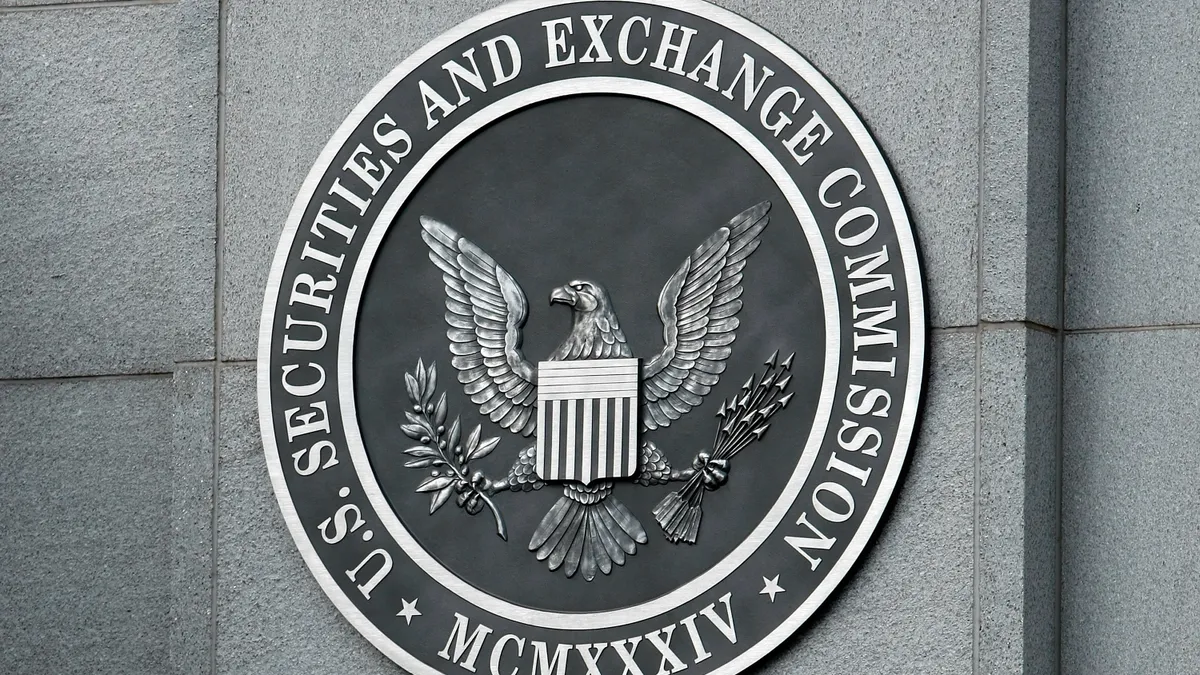Dive Brief:
- A Nasdaq rule requiring race and gender diversity on corporate boards will prove “credit positive” for the more than 3,000 companies listed on the exchange, Moody’s Investors Service said in a report.
-
The Securities and Exchange Commission (SEC) on Aug. 6 endorsed a rule proposed by Nasdaq that would require listed companies to include on their boards at least one woman director and someone who is a racial minority or who self-identifies as lesbian, gay, bisexual, transgender or queer. Companies would be required to regularly report on the demographics of their boards, and those that fail to justify non-adherence to the standard in writing would risk de-listing.
-
“The SEC’s approval of Nasdaq’s listing rules is credit positive for Nasdaq and its listed firms because the rules will improve transparency and disclosure, as well as encourage board-level diversity and inclusive representation,” Moody’s Investors Service said.
Dive Insight:
Republican lawmakers and advocates for limited government have leveled several criticisms against the Nasdaq rule, including the assertion that it will saddle companies with additional costs and slow economic growth.
The proposed rule “harms economic growth by imposing costs on public corporations and discouraging private corporations from going public,” the 12 Republicans on the Senate Banking Committee said in a February letter to the SEC’s acting chair. The “arbitrary diversity requirement does not demonstrably improve corporate performance, and could sometimes harm it.”
Nasdaq’s assertion that diversity improves company performance is questionable at best, according to David Burton, a senior fellow at the Heritage Foundation.
“The actual empirical, peer-reviewed economics literature is highly inconclusive — with most studies showing little or no discernible effect on financial performance due to the sexual, racial, or ethnic composition of corporate boards, Burton said in a paper. “All serious surveys of the literature reach this conclusion.”
Under a campaign to remake the purpose of business to promote social justice, “businesses would become less productive and less competitive,” Burton said. “Jobs would be lost, and wages would grow more slowly.”
The SEC should avoid increasing the compliance costs for U.S. companies, according to the Competitive Enterprise Institute.
“Agencies should consider the cumulative total burden that regulated entities are already working under, how any proposed rule would increase it and the dynamic effects of that increased total,” the institute said. “Every regulatory requirement incurs costs for a firm, in both time and money, that could be spent on an array of alternative priorities — including the benefit of diverse stakeholder groups.”
Yet SEC Chair Gary Gensler said the Nasdaq requirements align with investor preferences.
The rules “reflect calls from investors for greater transparency about the people who lead public companies,” Gensler said in a statement. The standards “will allow investors to gain a better understanding of Nasdaq-listed companies’ approach to board diversity, while ensuring that those companies have a flexibility to make decisions that best serve their shareholders.”
The Nasdaq rule will help investors make accurate comparisons between companies, Moody’s Investors Service said.
“A framework set up by a self-regulatory organization such as Nasdaq will improve consistency in diversity reporting and enhance comparability,” according to Moody’s Investors Service. “Access to high quality and consistent data is essential for [environmental, social and governance] ESG investing because of the data-driven nature of investment products such as diversity-specific and ESG indexes.”
Investors last year piled a record $51.1 billion into sustainable funds in the U.S., more than twice the previous record in 2019 and nearly one-quarter of all flows into U.S. funds during the year, according to Morningstar Inc.
“The basic consideration of ESG issues to enhance investment performance has also become widespread even among traditional investment managers, who are beginning to recognize the materiality of ESG risks and opportunities in security selection,” Morningstar said.
“Sustainable investing generally refers to the full consideration of environmental, social, and corporate governance, or ESG, concerns within an investment strategy, both to enhance investment performance and contribute to better societal outcomes,” according to Morningstar.















